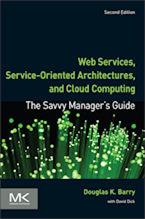Customer Information XML
eXtensible Customer Information Language (xCIL): Uses customer data such as telephone numbers, e-mail addresses, account numbers, credit card numbers etc. to uniquely identify a customer.. This helps in achieving single customer view, customer relationship management strategies, understanding customer profile, etc. xCIL is part of the OASIS Customer Information Quality (CIQ) family of specifications. Organization: OASIS. More information: CIQ page on the OASIS website.
eXtensible Customer Relationships Language (xCRL): XML standard specification to represent customer relationships in a standard way to help achieve interoperability between different systems, processes and platforms and in building effective single customer views. xNAL and xCIL are referenced by xCRL. xCRL is part of the OASIS Customer Information Quality (CIQ) family of specifications. Organization: OASIS. More information: CIQ page on the OASIS website.
Context for Customer Information XML
Related Articles for Customer Information XML
- Address XML
- Computing Environment XML
- Content Syndication XML
- Electronic Data Interchange (EDI) XML
- Geospatial XML
- Human XML
- Localization XML
- Math XML
- Open Applications Group Integration Specification (OAGIS)
- Open Office XML
- Topic Maps XML
- Trade XML
- Translation XML
- Universal Business Language (UBL)
- Universal Data Element Framework (UDEF)
Author
Douglas K Barry
Principal
You may use this material for your work or classes. Reprint Policy. Be sure to check the menu at the left for other articles available on this site.
The Savvy Manager's Guide
Douglas K Barry is also the author of a book that explains Web Services, service-oriented architecture, and Cloud Computing in an easy-to-understand, non-technical manner.
Web Services, Service-Oriented Architectures, and Cloud Computing: The Savvy Manager's Guide (Second Edition)
by Douglas K Barry with David Dick
This is a guide for the savvy manager who wants to capitalize on the wave of change that is occurring with Web Services, service-oriented architecture, and—more recently—Cloud Computing. The changes wrought by these technologies will require both a basic grasp of the technologies and an effective way to deal with how these changes will affect the people who build and use the systems in our organizations. This book covers both issues. Managers at all levels of all organizations must be aware of both the changes that we are now seeing and ways to deal with issues created by those changes.

